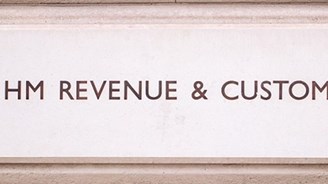Even an eminent tax barrister can rely on accountants to avoid a deliberate error penalty

Mark Morton shares his opinion on a recent First Tier Tribunal where HMRC tried to hold a tax barrister to account with some success.
The background
In this case (TC06254: Patrick Cannon First-tier Tribunal October 2017) the taxpayer is a barrister at the Tax Bar, his authority being predominantly within indirect taxes (SDLT in particular). One aspect of his work disliked by HMRC was providing advice and counsel's opinion for tax avoidance schemes. Upon being politely asked at one meeting to withdraw these services, and his refusal, HMRC launched an enquiry into the taxpayer's 2010/11 return. Whilst the Tribunal drew no conclusion as to the motivation behind this enquiry, the taxpayer certainly made his views felt that the enquiry was maliciously executed.
Omissions
HMRC claimed that the taxpayer had omitted certain professional fees from his turnover, duplicated repair/refurbishment expense claims and incorrectly claimed sideways loss relief on furnished holiday letting losses. Originally, all errors were held by HMRC to be deliberate but the first two were later reclassified as careless only.
Taxpayer's expertise
Great play had been made by HMRC of the taxpayer's expertise and how he, of all people, should not be able to hide behind the actions of his accountant. The Tribunal rejected that argument early on, pointing out that for someone to be held negligent or careless they personally must have been so. If their accountant/adviser is acting as a mere agent or functionary then there are an agent and the taxpayer takes responsibility for their actions. However, where an agent is acting in a truly professional capacity, it is not careless or negligent to reply on their advice unless the individual has reason to believe that such advice is incorrect. The Tribunal also pointed out that just because an individual is an expert in one field of tax does not mean he's expected to know the intricacies of all areas of tax.
Turing to the particular errors, HMRC argued that the furnished holiday let was not rented out for the requisite number of days and that letting the renovation project manager reside there was not of sufficient commercial substance. The Tribunal held that the taxpayer was reasonable to rely on his accountant who (wrongly) said his holiday property in Lincolnshire would qualify for furnished holiday letting qualifying days on a pro-rated basis. The Tribunal therefore held this to be an innocent error.
With regard to the omitted business receipt, HMRC pointed out that the fees in question had been incorrectly entered into a later accounting period rather than the current one. The Tribunal pointed out that the taxpayer, like all barristers in private practice in chambers, rely on their clerks to take care of their fees just in the same way someone would rely on an accountant. In this instance:
..barristers in the position of the appellant (have) taken reasonable care by placing reliance in the integrity and reliability of this chambers' maintained accounting records unless he has good reason to doubt wither their integrity or accuracy...
This error was also held to be an innocent mistake.
Reliance on others and lack of care
However, any reliance on others for the lack of care concerning the duplicate repair error could not be so easily applied. The taxpayer had commissioned a capital allowance report by a third party into eligible claims within chambers' premises. When these claims were made the taxpayer double-claimed some expenses which had already been taken into account in the report. The mistake was brought to HMRC's attention in an unprompted disclosure. However, in this instance the taxpayer could not rely on his accountant or his clerks as he was the only one able to notice the double-counting.
Appeal allowed in part
This error was held to be careless, though the penalty was reduced from 15% to 10%.
The appeal was therefore allowed in part.
Interesting that HMRC feel confident enough to take Tax Counsel to the Tribunal but an indication of HMRC's increasingly aggressive approach to penalties.



